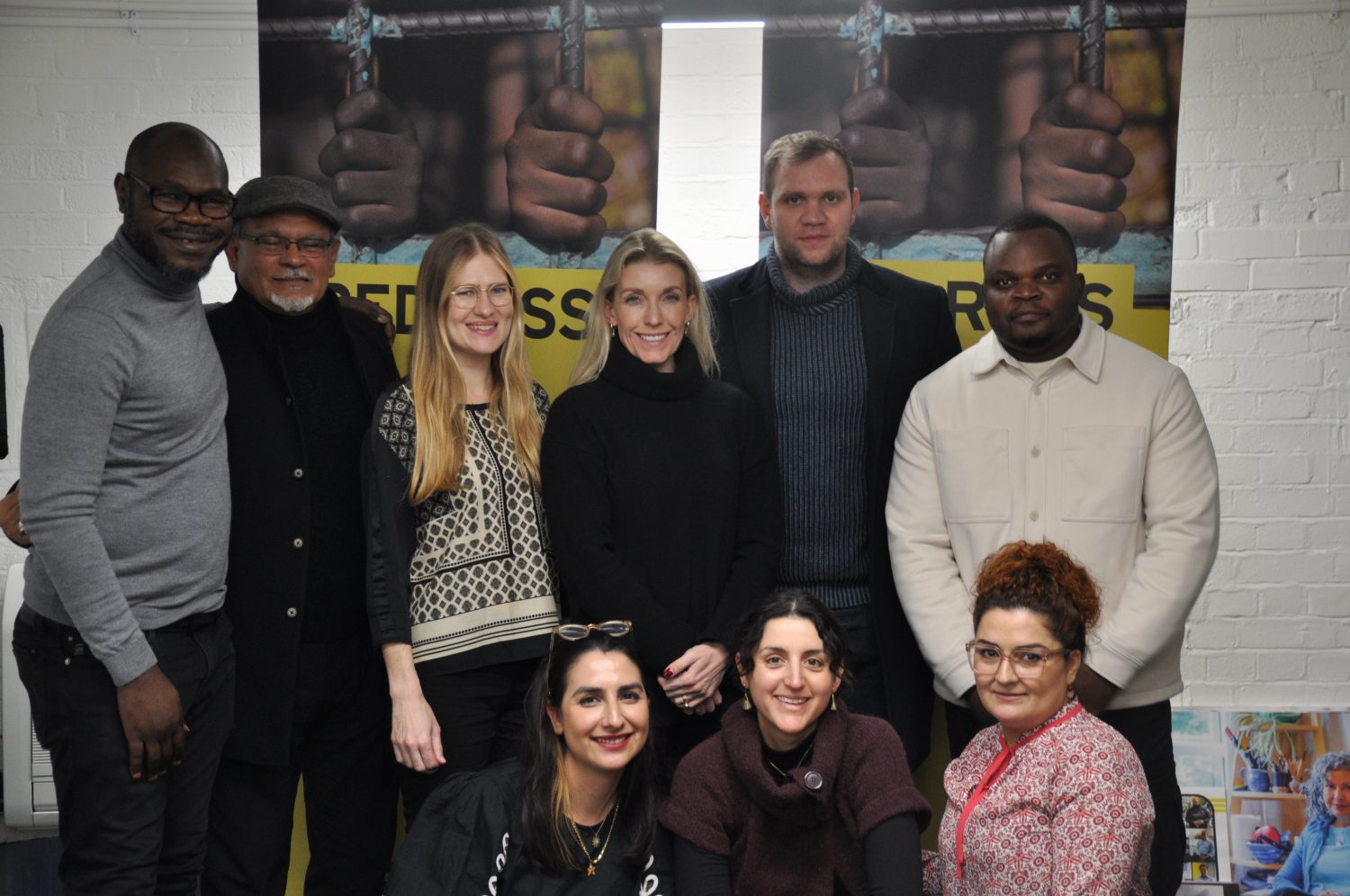Survivor Advisory Group
One of REDRESS’ key values is its commitment to a survivor-centred approach to accountability and justice. Since 2022, REDRESS has been facilitating a network of UK-based survivors of torture, known as the Survivor Advisory Group, whose main priorities are protecting the absolute prohibition of torture and putting survivors’ voices at the centre of domestic legislative and policy proposals.
The Survivor Advisory Group has developed its call to action, the Survivors of Torture Manifesto, which outlines their recommendations to the UK government on how it can remove the main barriers that prevent survivors from accessing justice across areas such as accountability, rehabilitation, asylum, and immigration. The Survivor Advisory Group is a network that has been created for survivors to unite, discuss advocacy initiatives, and ensure that the priorities of individuals with lived experience are put at the centre of efforts to obtain justice. The Group enables participants to connect with others who have been impacted by similar experiences, widen their networks, and develop skills. Their expertise enriches research, campaigns, and projects and ensures REDRESS’ anti-torture work better reflects survivor needs.
Seeking justice and accountability through human rights mechanisms is often a lengthy process that can take several years. Delays in legal processes can create a sense of frustration and powerlessness. Many survivors have a sense of duty to protect others from human rights violations and survivor-centred advocacy can help to channel these feelings into action.
“Ultimately, involving survivors in the anti-torture sector’s processes can lead to more effective policies, better outcomes for survivors, and a greater respect for human rights,” says Tawanda, a member of the Survivor Advisory Group.
The Survivor Advisory Group recognises survivors as individuals with expertise and decision-making power, and not just as individuals identified as ‘victims’ or ‘clients’. This approach can challenge the traditional power dynamics between advisors and survivors, but such empowerment can be cathartic for survivors and contribute to their rehabilitation. It is another way of giving survivors agency to decide how they want to be involved in the anti-torture movement.
In recent years, the British government has introduced several bills such as the Overseas Operations Act 2021, the Illegal Migration Act 2023, and the Northen Ireland Troubles (Legacy and Reconciliation) Act 2023 which are detrimental to survivors of torture living in the UK. This initiative builds upon our research report, Whose Justice? Reflections from UK-based survivors of torture, which highlights that between 27% and 44% of refugees and asylum seekers in high-income countries like the UK will have experienced torture. Through this initiative, we will strive to ensure that the UK’s domestic legislation meets international standards, and that the government facilitates accountability and reparation for survivors and supports efforts to prevent torture.
If you’re interested in learning more about our survivor-centred approach, you can contact our Communities Officer, Camila Marin-Restrepo at [email protected] for more information.
Photo: Survivor Advisory Group

